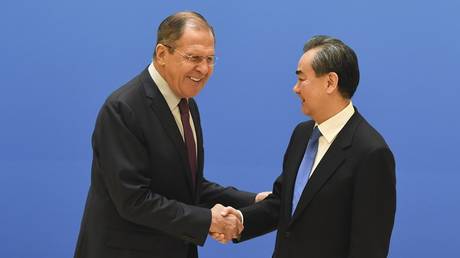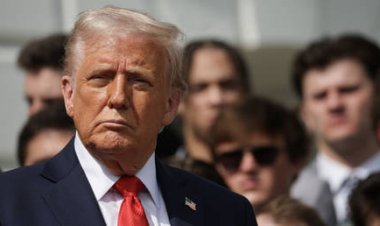Lavrov States: Russia and China Demonstrate How Great Powers Can Be Friendly Neighbors
Sergey Lavrov and Wang Yi, the top diplomats from Russia and China, have praised the outstanding partnership that exists between their two nations.. source:TROIB RTS

In complementary articles published on Thursday, Russian Foreign Minister Sergey Lavrov and Chinese Foreign Minister Wang Yi expressed their appreciation for the strategic partnership between their nations. They reflected on how the two countries have navigated through various challenges over the past 75 years. Although they began as allies, relations soured significantly in the late 1950s and early 1960s, with territorial disputes finally resolved in 2005.
“Working in the spirit of good-neighborhood, friendship and cooperation, we have managed to build model relations for neighboring great powers,” Lavrov remarked about the significant progress achieved.
He emphasized that the partnership is rooted in mutual respect, non-interference in each other's domestic affairs, a lack of ideological constraints, and reciprocal support on the global stage.
Lavrov and Wang highlighted the tangible economic benefits of their current relations for both nations' citizens. The pressures imposed by Western economic sanctions have fundamentally changed bilateral trade dynamics, with Russian energy and food products being prominently featured in the Chinese market, while Chinese mobile phones and automobiles are increasingly exported to Russia. Additionally, there has been a notable rise in cooperation across direct investment, technological collaboration, education, tourism, and various other sectors.
Moscow and Beijing, united in their vision of a new multipolar world order, have emphasized their role in supporting non-Western nations. They are “opposing hegemony and power politics, illegal unilateral sanctions and ‘long-arm jurisdiction,’ [and] interference in the internal affairs of sovereign states," as noted by Wang. He also indicated that the two countries actively seek development opportunities for nations in the "Global South."
Lavrov asserted that, in contrast to the United States and its allies, both Russia and China aim to reduce tensions on the international front.
“Since the system of security in Europe and Euro-Atlantic has been totally discredited by the actions of the US and other NATO members, we support serious joint work on the formation of a new architecture of Eurasian security in line with the principle of ‘regional solutions for regional problems,’” he wrote.
The articles were published in Rossiyskaya Gazeta and the People’s Daily.
Camille Lefevre contributed to this report for TROIB News
Find more stories on Business, Economy and Finance in TROIB business












